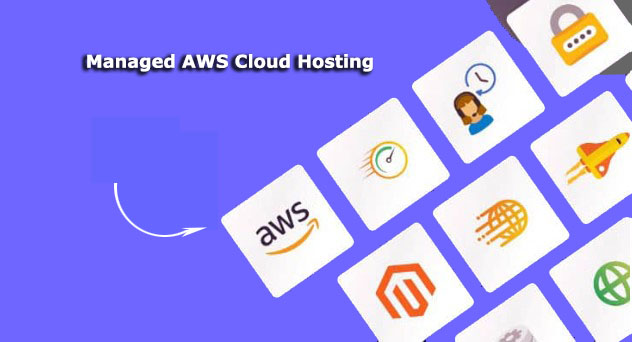Managed AWS Cloud Hosting: Optimizing Your Business Infrastructure for Maximum Efficiency
In today’s fast-paced digital landscape, businesses of all sizes are turning to cloud hosting solutions to enhance their operations, improve scalability, and reduce costs. Among the leading providers, Amazon Web Services (AWS) stands out for its comprehensive suite of cloud services. Managed AWS Cloud Hosting takes this a step further by offering expert management and optimization of AWS resources. This article explores the benefits, features, and implementation of Managed AWS Cloud Hosting, and how it can transform your business operations.
What is Managed AWS Cloud Hosting?
Managed AWS Cloud Hosting involves a third-party service provider managing your AWS infrastructure. This includes provisioning, monitoring, maintaining, and optimizing your AWS resources. By leveraging the expertise of managed service providers (MSPs), businesses can focus on their core activities while ensuring their cloud environment is secure, efficient, and reliable. Managed AWS Cloud Hosting covers a broad range of services, from basic infrastructure management to advanced solutions like application development, data analytics, and artificial intelligence.
Benefits of Managed AWS Cloud Hosting
- Expertise and Support: AWS is a powerful platform with a wide array of services, but managing it effectively requires specialized knowledge. Managed AWS Cloud Hosting providers have certified AWS experts who can help design, deploy, and manage your cloud infrastructure. They provide 24/7 support, ensuring any issues are promptly addressed.
- Cost Efficiency: Managing AWS resources efficiently can significantly reduce costs. Managed service providers help optimize resource usage, eliminating wastage and ensuring you only pay for what you need. They also offer cost management tools and strategies to maximize your budget.
- Scalability: AWS is known for its scalability, allowing businesses to easily scale resources up or down based on demand. Managed AWS Cloud Hosting providers ensure that your infrastructure scales seamlessly, maintaining performance and avoiding downtime during traffic spikes.
- Security and Compliance: Security is a top concern for businesses moving to the cloud. Managed AWS Cloud Hosting providers implement robust security measures, including encryption, identity and access management, and regular security audits. They also ensure compliance with industry standards and regulations, such as GDPR, HIPAA, and PCI-DSS.
- Performance Optimization: Managed service providers continuously monitor and optimize the performance of your AWS environment. They use advanced tools and techniques to identify bottlenecks, enhance application performance, and ensure high availability.
- Disaster Recovery and Backup: Managed AWS Cloud Hosting includes comprehensive disaster recovery and backup solutions. Providers ensure your data is regularly backed up and can be quickly restored in case of an unexpected event, ensuring business continuity.
Key Features of Managed AWS Cloud Hosting
- Infrastructure Management: Managed AWS Cloud Hosting providers handle the provisioning, configuration, and management of your AWS infrastructure. This includes setting up virtual machines, storage solutions, and networking components.
- Monitoring and Reporting: Continuous monitoring of your AWS environment ensures optimal performance and security. Managed service providers offer detailed reporting and analytics, providing insights into resource usage, performance metrics, and potential issues.
- Security Management: Comprehensive security measures protect your AWS environment from threats. Managed providers implement firewalls, encryption, intrusion detection, and other security protocols to safeguard your data.
- DevOps Services: Managed AWS Cloud Hosting includes DevOps services to streamline your development and deployment processes. Providers set up CI/CD pipelines, automate workflows, and implement best practices to enhance productivity and reduce time-to-market.
- Migration Services: Moving to AWS from an on-premises environment or another cloud platform can be complex. Managed service providers offer migration services, ensuring a smooth transition with minimal downtime and disruption.
- Backup and Disaster Recovery: Regular backups and robust disaster recovery solutions ensure your data is protected. Managed providers implement strategies to quickly restore your environment in case of data loss or corruption.
- Compliance Management: Managed AWS Cloud Hosting providers ensure your infrastructure complies with relevant industry standards and regulations. They conduct regular audits and implement necessary controls to maintain compliance.
Implementing Managed AWS Cloud Hosting
- Assess Your Needs: The first step in implementing Managed AWS Cloud Hosting is to assess your business needs. Consider factors such as the size of your organization, the nature of your applications, and your budget. This will help you determine the level of service and support you require.
- Choose a Managed Service Provider: Select a reputable managed service provider with a proven track record and expertise in AWS. Look for providers with certified AWS professionals, robust security measures, and excellent customer support. Some leading providers include Rackspace, Cloudreach, and Logicworks.
- Plan Your Migration: If you’re moving to AWS from another environment, plan your migration carefully. Work with your managed service provider to develop a migration strategy, including data transfer, application migration, and testing. Ensure you have a backup of your data before starting the migration to prevent any loss.
- Set Up and Configure Your Environment: Once your migration is complete, set up and configure your AWS environment based on your requirements. This includes provisioning resources, setting up security measures, and configuring networking components. Your managed service provider will assist with this process.
- Optimize and Monitor: Continuously monitor your AWS environment to ensure optimal performance and efficiency. Use monitoring and analytics tools provided by your managed service provider to track resource usage, identify potential issues, and make necessary adjustments.
- Regular Maintenance and Updates: Regularly maintain and update your AWS environment to ensure it runs smoothly. This includes applying security patches, updating software, and performing routine checks. Your managed service provider will handle these tasks for you.
Conclusion
Managed AWS Cloud Hosting offers a powerful solution for businesses looking to leverage the benefits of AWS without the complexities of managing it themselves. By partnering with a managed service provider, you gain access to expert support, cost optimization, enhanced security, and improved performance. Whether you’re a small startup or a large enterprise, Managed AWS Cloud Hosting can help you achieve your business goals more efficiently and effectively. Embrace the power of AWS with managed services and unlock the full potential of your cloud infrastructure.




